Below are a couple of interesting opinions our Daily Summary writers have picked out for you this week.
 Newton v. LePage, US 1st Cir. (11/28/12)
Newton v. LePage, US 1st Cir. (11/28/12)
Civil Rights, Constitutional Law
Below are a couple of interesting opinions our Daily Summary writers have picked out for you this week.
 Newton v. LePage, US 1st Cir. (11/28/12)
Newton v. LePage, US 1st Cir. (11/28/12)
Civil Rights, Constitutional Law
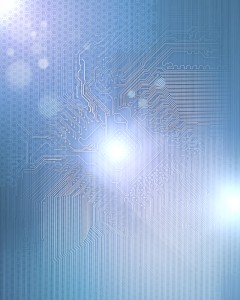 Massachusetts company Lexington Luminance LLC (“Lexington”) filed a lawsuit against Google, Inc. yesterday, November 29, in the U.S. District Court for the District of Massachusetts. It its complaint, Lexington alleges that Google’s Nexus 7 and other similar products infringe on a patent the company owns.
Massachusetts company Lexington Luminance LLC (“Lexington”) filed a lawsuit against Google, Inc. yesterday, November 29, in the U.S. District Court for the District of Massachusetts. It its complaint, Lexington alleges that Google’s Nexus 7 and other similar products infringe on a patent the company owns.
According to the complaint, the patent at issue, U.S. Patent No. 6,936,851, is entitled “Semiconductor Light-Emitting Device and Method for Manufacturing Same” and was issued to Lexington in 2005.
A Massachusetts business entity search reveals that the registered agent of Lexington is Tien Yang Wang, the inventor of the patent at issue. Organized in July 2012, the business has stated as its purpose “Technology Research and Development.”
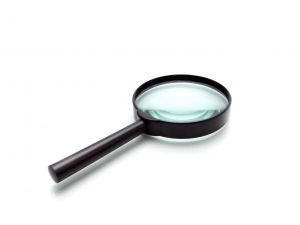 Yesterday, November 29, Brent Matthew Scott filed a class action lawsuit against Google, Inc. in the U.S. District Court for the Northern District of Florida. The lawsuit alleges that through its Gmail product, Google violated state laws against wiretapping.
Yesterday, November 29, Brent Matthew Scott filed a class action lawsuit against Google, Inc. in the U.S. District Court for the Northern District of Florida. The lawsuit alleges that through its Gmail product, Google violated state laws against wiretapping.
Specifically, the complaint alleges that Google intercepts the plaintiff’s emails (and those of the entire class of plaintiffs) before they reach the intended recipients, in violation of the Florida Wiretap Act, codified at Florida Statute § 934.03.
Most of the lawsuits against Google that are brought under state and federal wiretapping laws have alleged that Gmail’s automatic scanning of emails for personalized ad placement violates state and federal law. However, the present lawsuit does not elaborate on the nature of Google’s alleged violations other than to say that the provider “intercepts” the emails.
![]() California Watch, part of the Center for Investigative Reporting, has a post this week about the relative costs and revenue of PACER. We’ve talked about the problems with PACER fees and the impediments to access before, and it is certainly a familiar topic to those of us in the free law community, but it hasn’t gotten much attention outside of that.
California Watch, part of the Center for Investigative Reporting, has a post this week about the relative costs and revenue of PACER. We’ve talked about the problems with PACER fees and the impediments to access before, and it is certainly a familiar topic to those of us in the free law community, but it hasn’t gotten much attention outside of that.
It seems the California Watch found this information by doing some digging on PACER fees after it was denied a limited exemption based on its status as a nonprofit organization. Academics and nonprofits are typically awarded a waiver of fees “to promote public access to information.” CIR was originally granted an exemption, but then it was revoked, allegedly on the grounds that CIR is a media organization. According to the post, CIR is appealing the decision to the Ninth Circuit Court of Appeal.
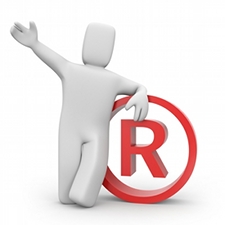 Apple acquired partial European trademark rights to the word “lightning” from motorcycle maker Harley-Davidson’s intellectual property unit, H-D Michigan, LLC, according to public filings with the European Union’s trademark and design unit (see below), and a blog post by Patently Apple.
Apple acquired partial European trademark rights to the word “lightning” from motorcycle maker Harley-Davidson’s intellectual property unit, H-D Michigan, LLC, according to public filings with the European Union’s trademark and design unit (see below), and a blog post by Patently Apple.
Apple uses the term Lightning to describe its proprietary connection interface for iPhone, iPad, iPod, and iTouch devices that were introduced starting in September 2012.
The trademark update, however, currently applies only in the EU, although it seems likely that Apple and H-D also negotiated for the transfer of certain U.S. trademark rights to the word mark.
The H-D unit filed a trademark registration on January 1, 1995, with the U.S. Patent and Trademark Office for “motorcycles and structural parts therefore,” and was awarded trademark registration by the USPTO for the word mark nearly 2.5 years later on June 3, 1997.
 Happy Thanksgiving from the Justia team — we are thankful for all our readers and free law friends!
Happy Thanksgiving from the Justia team — we are thankful for all our readers and free law friends!
The legal establishment of Thanksgiving began with a resolution from the U.S. Congress. The resolution put forth a request that President George Washington recommend a day of thanksgiving, which he did, via proclamation, by declaring Thursday, November 26th, 1789, a day of “Publick” thanksgiving. You can find a copy of this proclamation, along with other historical legal documents and history relating to the holiday below.
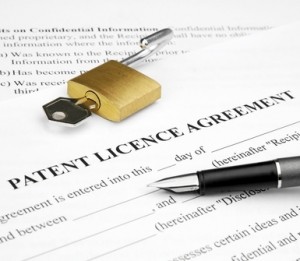 Samsung’s lawyers want a copy of Apple’s patent licensing agreement with HTC, according to emails filed in federal court on Friday (highlighted below).
Samsung’s lawyers want a copy of Apple’s patent licensing agreement with HTC, according to emails filed in federal court on Friday (highlighted below).
After a federal jury returned a $1.05 billion verdict for Apple in August — just one of the two companies’ hotly contested global patent disputes — U.S. District Court Judge Lucy Koh scheduled a December 6 hearing date on Apple’s request for an injunction prohibiting the sale of reportedly infringing Samsung products.
Samsung, however, is trying to lessen the severity of any injunctive relief sought by Apple, since the Cupertino company and competing mobile device marker HTC just settled their own patent litigation.
 Check out the latest crop of featured cases from Justia’s Dockets.
Check out the latest crop of featured cases from Justia’s Dockets.
Hank Azaria v. Craig Bierko et al., (US District Court, C.D. California)
Actor Hank Azaria, well-known for his voice actor roles in “The Simpsons” television show, filed a copyright lawsuit seeking declaratory relief against actor Craig Bierko in a dispute over the voice and other rights of ‘Jim Brockmire,’ a baseball announcer character.
Hank Azaria Sues Over a Character Voice, E.W.com (11/16/12)
The People of the State of California v. eBay, Inc., (US District Court, N.D. California)
United States of America v. eBay, Inc., (US District Court, N.D. California)
The U.S. Department of Justice filed this antitrust lawsuit against eBay because of its an agreement between the online marketplace company and Intuit, a software company that develops financial and tax preparation software. The non-competition agreement between the two companies prohibits either from hiring employees from the other company. The two companies otherwise compete directly for highly specialized computer engineers and research scientists. California Attorney General Kamala Harris filed a lawsuit against both companies under California law, citing the state’s stricter restrictions against anticompetitive behavior.
eBay, Intuit Signed Noncompetitive Agreement, Government Alleges, The Huffington Post (11/16/12)
Chicago Board Options Exchange, Incorporated v. International Securities Exchange, LLC (US District Court, N.D. Illinois)
The Chicago Board Options Exchange filed a $525 million dollar patent infringement lawsuit against a competing options exchange, International Securities Exchange, alleging that three of its Quote Risk Monitor patents are being infringed.
CBOE Sues International Securities Exchange Over Patents, Bloomberg BusinessWeek (11/13/12)
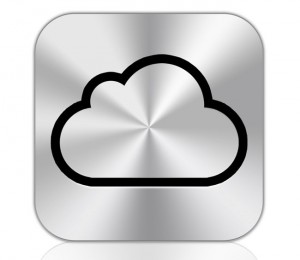 On Friday, a California company called Innovative Automation LLC filed a lawsuit against Apple Inc. Filed in the U.S. District Court for the Eastern District of Texas, the complaint alleges that Apple’s iCloud product infringes on a patent owned by Innovative Automation.
On Friday, a California company called Innovative Automation LLC filed a lawsuit against Apple Inc. Filed in the U.S. District Court for the Eastern District of Texas, the complaint alleges that Apple’s iCloud product infringes on a patent owned by Innovative Automation.
The first patent at issue, U.S. Patent No. 7,174,362, is entitled “Method and System for Supplying Products from Pre-Stored Digital Data in Response to Demands Transmitted via Computer Network” and was issued in 2007. Innovative Automation claims that Apple’s iCloud product and service infringes on this patent in the way that it duplicates digital data.
The complaint also alleges that iCloud infringes on a second patent owned by the plaintiff—U.S. Patent No. 7,392,283, entitled “Method and System for Supplying Products from Pre-Stored Digital Data in Response to Demands Transmitted Via Computer Network” and issued in 2008. According to the complaint, Apple’s iCloud product and service infringes on this patent for the same reason as its other patent.
According to a business search through the California Secretary of State, the company Innovative Automation was created in 2011 and is based in San Jose, the heart of Silicon Valley. Its registered agent is Sungil Lee, who is CEO of an education software company called Innovative Knowledge, Inc. Lee is also named as the inventor of both patents at issue in this case.
As the blog Patently Apple points out, “this plaintiff has filed a similar lawsuit against Amazon within the last 24 hours claiming that their Kindle and distribution service “Cloud Player” violates the very same patents used against Apple.”
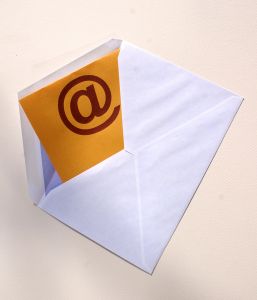 Yesterday, Google was named in a class action lawsuit by a plaintiff identified only as “A.K., as next friend of minor child J.K.” Filed in the U.S. District Court for the Southern District of Illinois, the lawsuit alleges that Google has violated (and continues to violate) the Electronic Communications Privacy Act of 1986 (the “Act”) and various state privacy laws by its “intentional and willful interception, scanning, and use of” emails sent to and from J.K., a minor child.
Yesterday, Google was named in a class action lawsuit by a plaintiff identified only as “A.K., as next friend of minor child J.K.” Filed in the U.S. District Court for the Southern District of Illinois, the lawsuit alleges that Google has violated (and continues to violate) the Electronic Communications Privacy Act of 1986 (the “Act”) and various state privacy laws by its “intentional and willful interception, scanning, and use of” emails sent to and from J.K., a minor child.
The plaintiff claims to represent similarly situated minor children in the state of Illinois and alleges, among other things, that Google’s Gmail product violates federal and state law. Section 2511 of the Act makes punishable anyone who “intentionally intercepts, endeavors to intercept, or procures any other person to intercept or endeavor to intercept, any wire, oral, or electronic communication.”
This is not the first time Google has been sued for Gmail’s use of email scanning to deliver personalized ads. In November 2010, Keith Dunbar filed a lawsuit in the U.S. District Court for the Eastern District of Texas alleging the same violations. The case was transferred in June 2012 to Judge Lucy Koh on the U.S. District Court for the Northern District of California and is still in discovery at the time of writing.